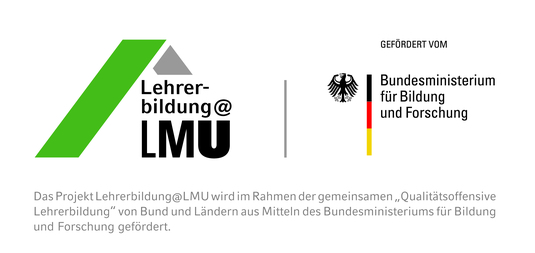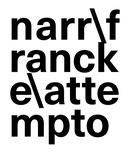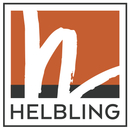Programme
Download: Complete programme overview
Impulse lecture (09:30-10:30)
Prof. Dr. Laurenz Volkmann (University of Jena)
Taking literature off the page: Drama, drama techniques and the performative turn in the EFL classroom
Leave the script on the desk and just act out? If you thought that jettisoning the “desk-bound approach” to teaching drama was the latest in teaching and learning methods, you may be in for a surprise. What is really cutting-edge, so to speak, are concepts where scenes or lines from a play or any literary or non-literary text are used to further “performance skills” and / or to make learners aware of the “performativity” of all communication. The focus on performative skills seems specifically pertinent to enhancing intercultural competence. In this presentation I will provide a survey of this turn from interpreting drama to taking literature off the page and, finally, to focusing on the performative aspects of communication with the help of literary texts.
Workshop round I (10:45-12:00)
Prof. Dr. Werner Delanoy (Alpen-Adria-University Klagenfurt)
Dramatizing English language education
The aim of this workshop is to suggest drama activities for English language education. The term language education, here, stands for language learning approaches in line with a humanistic and dialogic agenda. The drama activities suggested permit embodied responses to literary and non-literary texts. Moreover, following Boal’s concept of the “spectactor”, these activities aim for forms of audience participation, where the borders between players and audience can be transgressed in a joint discussion of the issues raised.
Janna Buck (Humboldt-University Berlin)
Drama pedagogy: An inclusive approach to teaching & learning English as a foreign language?!
Inclusive Education centres pupils’ individual learning needs. Drawing upon the didactic potential of drama pedagogy for holistic and communicative language learning, the workshop aims at trying out different drama methods to then reflect upon their application in inclusive classrooms. Can drama pedagogy be considered an effective tool to enhance pupils’ participation? Perspectives and challenges will be discussed.
Dr. Jessica Nowoczien (Leuphana University Lüneburg)
Being A.N.Other: Negotiating gender through drama
This workshop explores how drama techniques can activate students of all ages to reflect on gender representations, not with a wagging finger but through play, allowing confusion, laughter and authenticity to enter the EFL classroom. Easy-to-learn methods, especially taken from improvisation theatre, are used to negotiate identities and diverse perceptions of life. While acting, players dare to step out of their comfort zones and dress up, act, speak, feel and interact with others in ways they have never experienced before.
Lisa Peter (Shakespeare Birthplace Trust, Stratford-upon-Avon)
Exploring Shakespeare – Practical teaching skills from the Shakespeare Birthplace Trust
Drawing on the Shakespeare Birthplace Trust's expertise of working with language learners, this workshop will introduce and showcase some of the methods we use when working with these audiences, from insult battles to working with the texts and the history of Shakespeare’s England in a fun and appropriate way.
Workshop round II (13:30-14:45)
Franziska Elis (Albrecht-Thaer-Gymnasium Hamburg)
Enabling young learners to communicate confidently – drama methods in grade 4 and 5
In this workshop we will explore the potential of drama methods in supporting young learners’ enthusiasm as well as competence when it comes to speaking the foreign language. Drama methods not only equip learners with chunks or train the affective dimension of communication, they can also have a positive effect on the pupils’ self-concept. Those aspects are especially important during the transition from grade 4 to 5 and thus require us as teachers to develop a transition competence.
Prof. Dr. Maria Eisenmann (University of Würzburg)
A multiliteracies approach to teaching plays
In light of multimodality and digitalisation this workshop will focus on the benefits of transforming dramatic texts into Internet-based products not only to educate competent and critical readers, but also to develop critical media literacy. For this the Multiliteracy Pedagogy offers a very helpful approach, which allows students to transform plays into their own designs such as computer adventures, short films or other forms of adaptations.
Dr. Frauke Matz (University of Münster)
“We can’t make it ours, unless we’re in it” - The role of contemporary YA drama for EFL learning
Contemporary drama written for young adults offer valuable opportunities for democratic education: These texts don’t only address political issues, they also invite students to ‘play’ with different roles and perspectives. Learners are young members of performative societies attempting to find their own (political) position. They can be encouraged to become competent critical performers/producers of these young adult plays, while developing their own performative (discourse) competence in today’s global society.
Mark Almond (Canterbury Christ Church University)
Doing Shakespeare: From page to stage
English language teachers and students often baulk at the suggestion of studying the works of Shakespeare in the classroom let alone dramatising them. In this practical workshop, I will briefly explain why Shakespeare is relevant to English language users today in terms of his contributions to modern English usage and the universal themes of his plays. We will then try out a number of classroom activities that focus on voice work and general techniques for dramatising text.
Workshop round III (15:15-16:30)
Prof. Dr. Laurenz Volkmann (University of Jena)
Teaching Shakespeare – What’s old, what’s new?
Ten years ago Roland Petersohn and I edited the two-volume collection of critical essays Shakespeare didaktisch. In 2018, the concepts outlined at the beginning of the millennium need to be completely updated. In this workshop I will attempt such an “updated” look at the ten principles we suggested, with a special focus on teaching to the generation of “digital natives” in the current era of output-orientation and standardization. Principles to be be “modernized” include: Shakespeare also for younger students, focusing on the students’ experience and interest, ‘Shakespeare’s Globe’ in London as a special teaching resource, Shakespeare across the disciplines / school subjects, Shakespeare and the Internet.
Dr. Erika Piazzoli (Trinity College Dublin)
Embodying language: Voice and body in L2 pedagogy
When speaking in a second language, voice is strongly connected to emotion, intercultural identity and self-perception. An embodied approach to language teaching and learning can engage students' imagination, reflection, memories, emotions, body and voice - aiming for a felt-experience of the language and culture. In this seminar, we explore some practical foundation strategies that can engage teachers and students' voice, emotions and the body.
Dr. Almut Küppers (University of Frankfurt)
Staged empathy. The role of empathy in intercultural online / offline encounters and how to use drama to explore critical incidents
The world seems to be more black and white than ever before. While „we – them“ sentiments dominate the mediated perception of reality, urban life has in fact never been more colorful, more diverse and, apparently, more enriching. This workshop will be based on difficult everyday life encounters (critical incidents) and focuses on the key component of intercultural competence: Empathy – whose deeper dimensions we will explore by employing drama activities.
Dr. Christian Ludwig (University of Education Karlsruhe)
Nkosi sikelel’ iAfrika— Using digital technologies to experience contemporary South African drama
The legacy of South Africa’s colonial history, the totalitarian apartheid regime, and the ‘negotiated revolution’ continue to inform the New South Africa’s social, political, and cultural challenges. This workshop reflects how contemporary South African drama responds to these developments in aesthetic style, form, and subject matter, and how they can be dealt with in the EFL classroom by employing 21st century digital technologies.
Closing plenary (16:40-17:00)
This conference was made possible through the support of the following institutions:

A special thank you to our sponsors:





Downloads
- tefl day 2018 programme overview (230 KByte)

